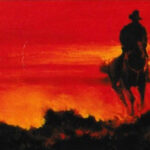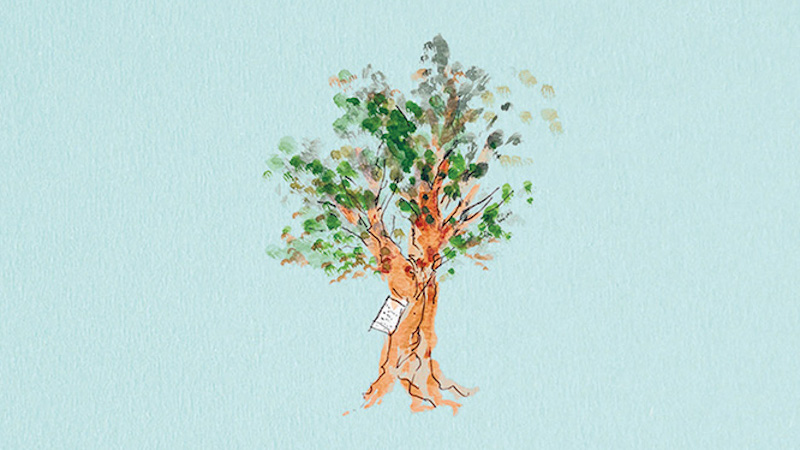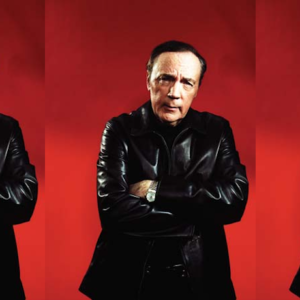- Zinzi Clemmons writes about the friendship and fallout between Zora Neale Hurston and Langston Hughes. | The New York Times
- “Alex and Wendy believe in the algorithm.” Christian Lorentzen on the state of book criticism. | Harper’s
- A writer cooks his way through Anthony Bourdain’s Les Halles Cookbook, starting with the French onion soup, of course. | The Takeout
- Rediscovering Nelson Algren, blacklisted novelist who chronicled the people “left behind by the striving, upwardly mobile American middle class.” | The Nation
- “Toews is an artist of escape; she always finds a way for her characters, trapped by circumstance, to liberate themselves.” A profile of Miriam Toews. | The New Yorker
- The many problems with the Bad Sex in Fiction awards. | iai
- “In those pre-hip-expresso-bongo days, Stanley’s was the nearest thing to a Left Bank we had out there”: The story of the Stanley Rose Book Shop, a hotspot in 1930s L.A. for writers and artists. | LAist
- On the Mitford sisters, and their “story of aggressively nursed betrayals, both big and small… Imagine a Real Housewives franchise where half the cast goes Nazi.” | Jezebel
- “Does it do any good to remind ourselves: these will (very soon) be the good old days?” From nuclear war to climate disaster, Josephine Rowe on the End Times in Australia. | The Believer
- Francis Spufford has written a prequel to C.S. Lewis’s Narnia books—but not everyone thinks we need one. | The Guardian, New Statesman
- In news that will not surprise any female writers, a UK commission called the Emilia Report found a “marked bias” toward male writers in media coverage. | The Guardian
- “You’ll either love it or hate it, but whatever you do, just don’t look up the Wikipedia plot summary.” A spirited debate about A Little Life. | The Niche
- “In political fiction at least, journalists don’t make great protagonists”: Novelist (and veteran journalist) Tom Rosenstiel on why journalists are so rarely the heroes in political thrillers. | The Atlantic
- Like it or not, André Aciman has written a sequel to Call Me By Your Name, entitled Find Me. Ahead of the book’s fall release, read the synopsis. | IndieWire
- Think you’re too fantoosh to get off your chuddies and get some jibbons? The Oxford English Dictionary’s latest update includes a delightful wealth of regional terminology, from Scotland to India. | The Guardian
- “The best writing coming out of Ireland right now is so recognisably true to the lived experience of the mainland that it presents a natural corrective to constantly being gaslit about one’s own history and identity.” On teaching Irish literature in a time of Brexit. | The Irish Times
Also on Lit Hub:
On a remote Arctic island, Barry Lopez contemplates the hard questions of humanity’s survival, plus Barry Lopez and Charles Simic, in conversation, on a 1972 road trip • Thomas E. Ricks on life in an Updike novel • Sandra Newman on writing sex for money • The long tradition of literary allusions in hip-hop • Meet the man brought to trial for “High Crimes and Misdemeanors” against the English language • Some relentlessly cheery writing advice from Philip Roth • The island that inspired Conrad and Lawrence’s queerest characters • On the inevitability of the Big One along the San Andreas Fault • Writing poetry to find a father worth grieving • How Japan almost lost a national symbol to extinction • James Baldwin: “I never intended to become an essayist” • What Joe Wilkins wishes his children could learn from his rural upbringing • Andrea Dworkin’s argument against punctuation • What Lynn Tillman thinks about while making tea in the morning • The quest to acquire the most beautiful Gutenberg Bible of them all—also known as the oldest, most expensive book on the planet • On the lesser known life behind “The Yellow Wallpaper” • When you’re a writer who can’t afford a room of their own • Aldous Huxley foresaw America’s pill addiction with eerie accuracy • A dispatch from the Netherlands’ glamorous Boekenweek, where writers are treated like movie stars • T Kira Madden is not interested in writing as therapy • When 80 famous writers published their first (and last) books. OR: who has had the longest career
Best of Book Marks:
New on CrimeReads:
“Gentrification is choking the living hell out of noir cities.” Adam Abramowitz on noir in the era of gentrification • S.C. Perkins recommends 6 thrillers where past and present crimes are connected • When sadness seeps into the woodwork: Vanessa Savage on hauntings, memories, and psychological thrillers • Elisabeth Elo looks at 5 great thrillers set in Eastern Europe • Laura Benedict leads us on a tour through classic literature’s darkest hearts, from Dorian Gray to Tom Ripley • Sex, scandal, and swank: Guy Bolton’s guide to Los Angeles hotels in the Golden Age of mobsters and movie stars • Michelle Adams recommends five thrillers in which unreliable memories are key to unraveling the mystery • Don’t miss March’s best new thrillers • Get ready for “The Act,” Hulu’s new true crime drama about Gypsy Rose Blanchard • Carla Buckley rounds up 9 books where women confront the most awesome opponent of all: nature • Spring is here! Time to read some debuts and celebrate a growing genre •Up next on the world tour of crime fiction: Helsinki • Gianni Russo, Carlo Rizzi from “The Godfather,” on his stint as a Las Vegas hotel magnate • Alma Katsu on the irresistible allure of writing about the famous dead • Kirby charts the long tradition of setting thrillers in psychiatric hospitals and asylums, from The Woman in White toShutter Island



















